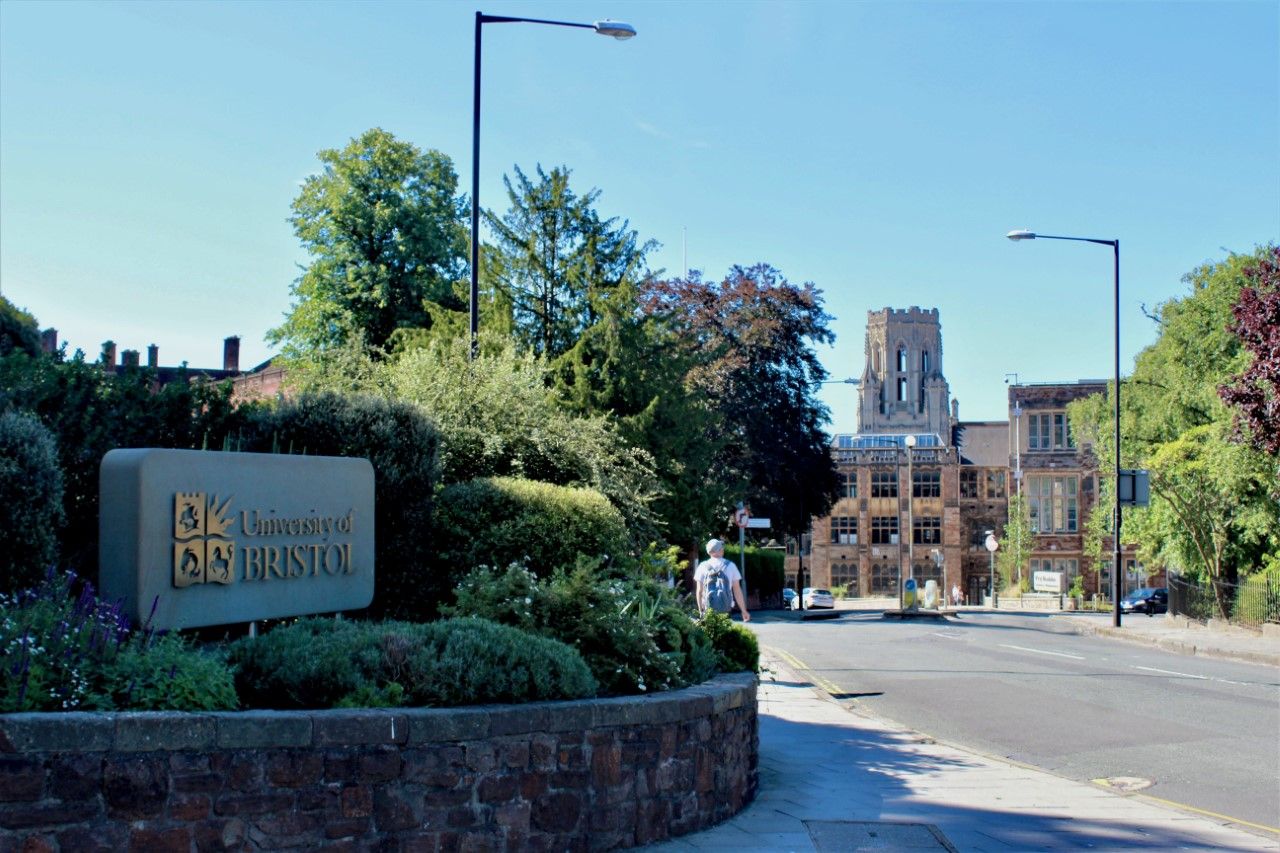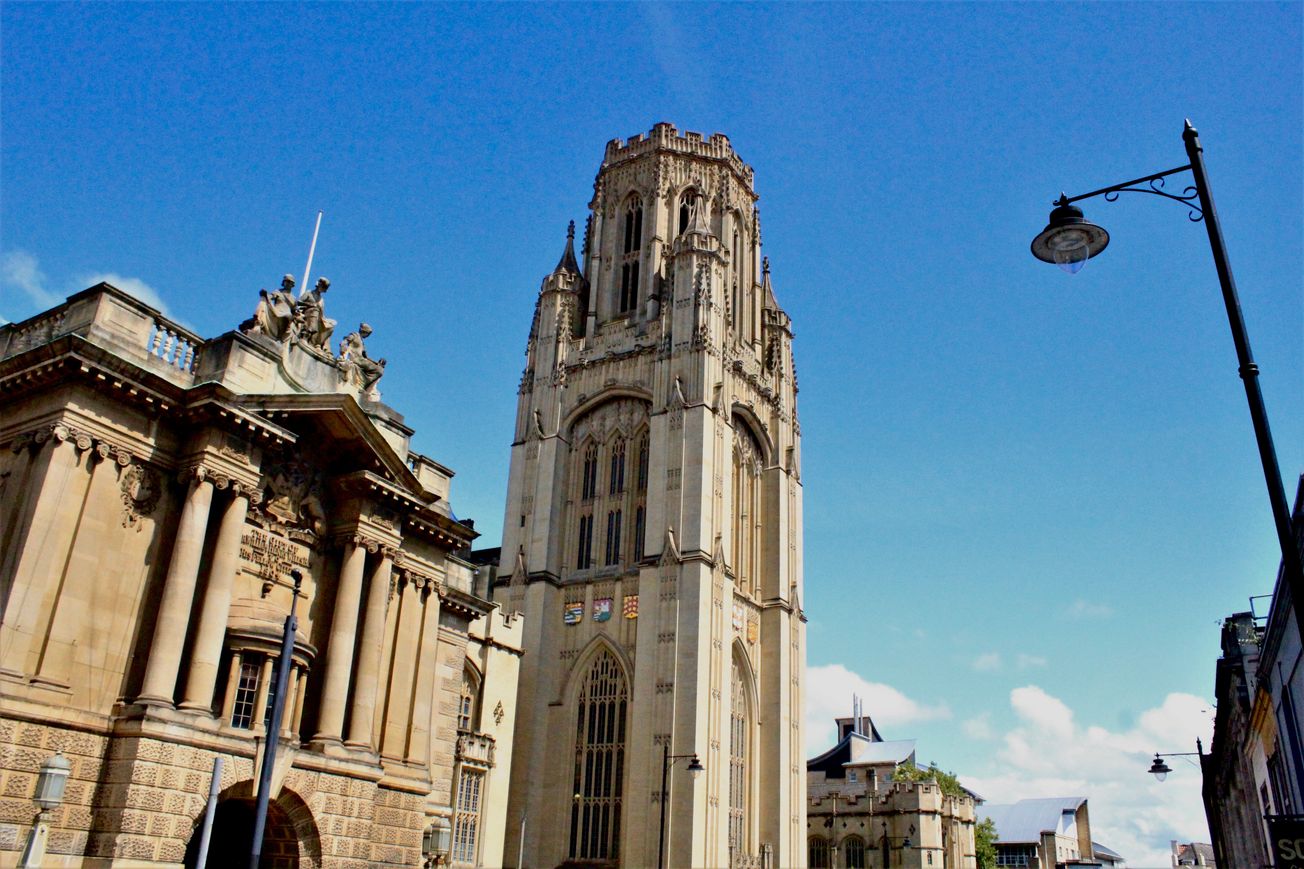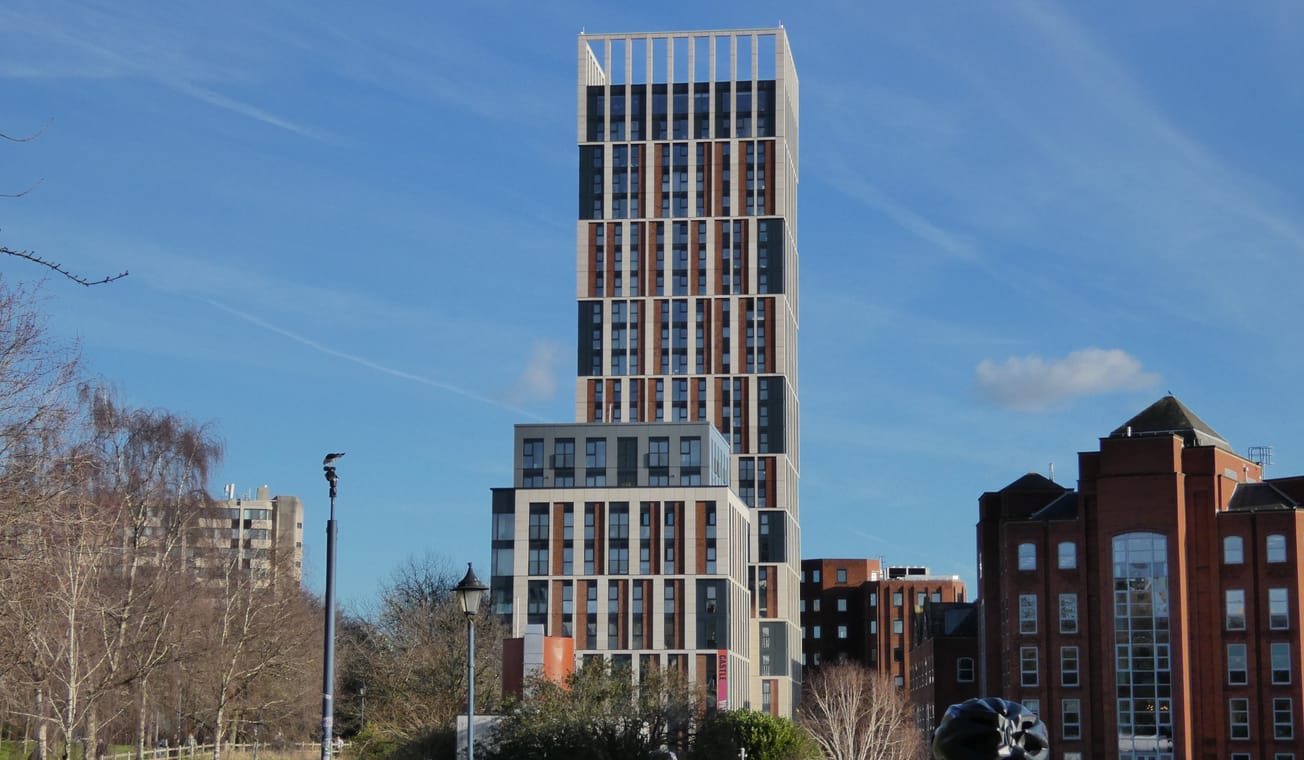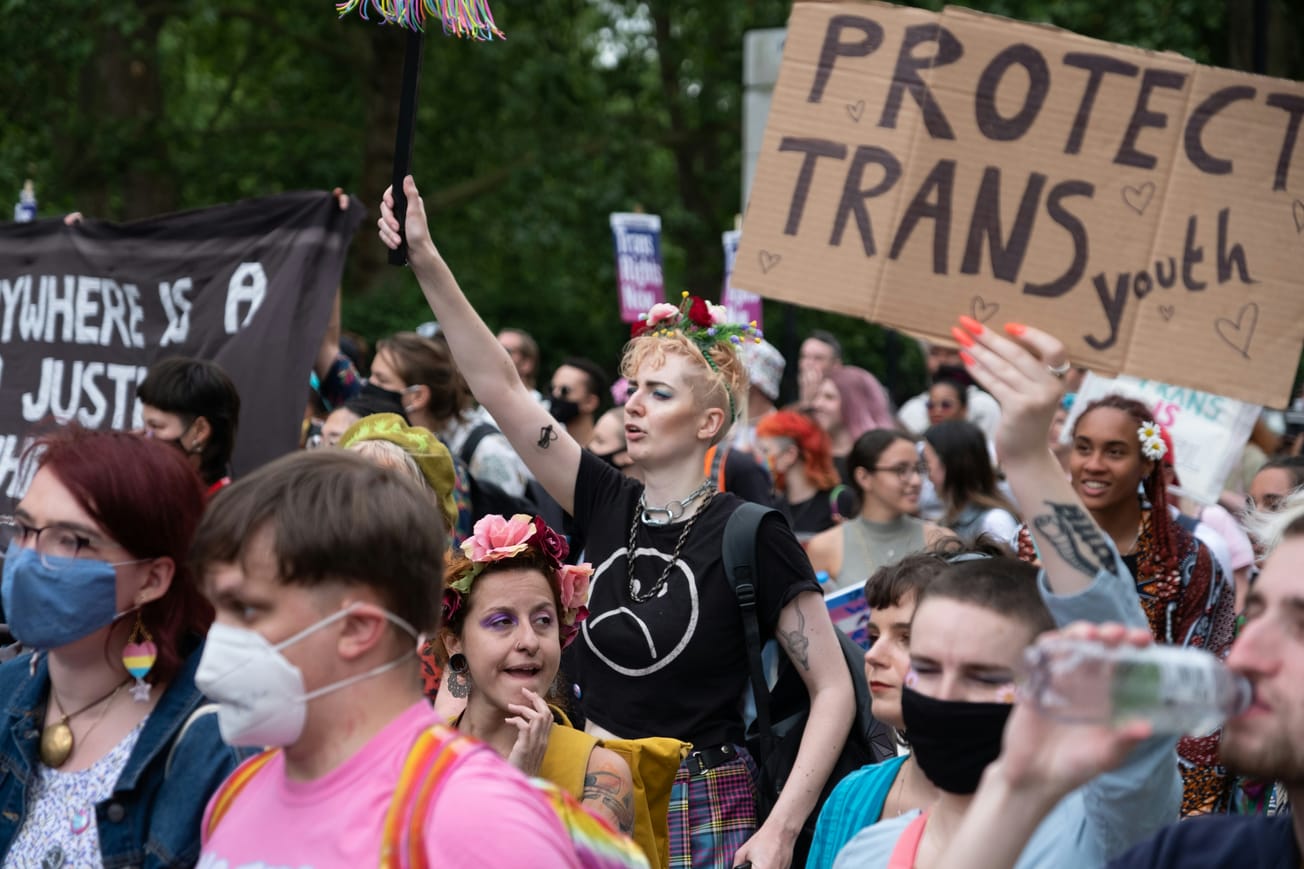This article has also been translated into Chinese, which can be read below.
By Stella Wang, University of Bristol, Careers Support Officer (International), Bristol University Graduate (2015)
How would you feel if you were blamed for causing Covid-19, just because of the way you look?
I am Stella Wang, I worked in the Careers Service and I was a student at the University of Bristol. I am writing this article to share my experience, and to signpost resources on what you can do when facing hate crime.
Since last year, more and more racist incidents have occurred due to Sinophobia.
Last year, we heard that Chinese students felt pressured to wear scarves to hide their masks, just to avoid people attacking them for mask-wearing.

When the first lockdown started, I was seeking treatment in A&E and faced racist abuse from another patient of the hospital. I was being called ‘Chinese virus’, by a random patient waiting in the same area.
Luckily, my friend who accompanied me to the A&E helped me to report this incident to the reception, and I was invited to sit in a place away from the individual.
People of East Asian appearance have even been hospitalised by racist attacks, we recently saw the reporting of the shootings in Atlanta, Georgia, which left eight dead, including six Asian women.
Last month, a Southampton University lecturer Dr. Peng Wang was attacked in broad daylight in a case of racially aggravated assault, by four men who had shouted abuse from a car.
i wasn't gonna tweet about it, but the weight of the asian hate crimes finally hit me emotionally today...i ended up breaking down/crying multiple times throughout the day, just thinking about all the times throughout life i've dealt with racism/xenophobia toward being chinese
— ✧ coral ✧ (@coralescent) March 25, 2021
Dr Wang said: ‘They were saying things like Chinese virus, get out of the country and dirty words… Hate crimes are increasing in the two years after Brexit and after the pandemic. So we as Eastern Asian people I would say we are currently in a dangerous position in the UK.’
Here, at the University of Bristol, Chinese students account for approximately half of our international students. We also have a large proportion of international student from Asia.
Diversity and inclusion have always been the top priorities of the university, and we would like our students to know that any kind of racism is unacceptable and we will support you in dealing with any such behaviour.
So, if you experience or witness any incidents of prejudice or harassment, what should you do?
1. Call the police.
If someone’s life is in danger, or a serious crime is taking place, you should always call the police immediately using 999. If the crime isn’t an emergency, call 101 or contact your local police. For Bristol, you can report hate crimes online at the Avon and Somerset Police website.
2. Find a safe space.
If an incident has just happened, try and find somewhere you feel safe. If you are at the University, you can call University Security on 0117 331 1223 or go to your nearest University building and ask someone to phone security for you.
3. Report the incident to the university.
• The University has a range of wellbeing support. If you are not sure who to contact, you can speak to an Adviser from the University’s Student Wellbeing or Residential Life Services for advice and support. Contact Wellbeing Access to do this.
• Have an informal conversation with the Student Complaints Officer (student-complaints@bristol.ac.uk, 0117 394 1820) or a Bristol SU Just Ask adviser.
• You can use the Report and Support system, filling a complaint form to make a formal complaint following the University’s Acceptable Behaviour Policy.
• Consider submitting extenuating circumstances if your studies have been, or are being, affected.
Why is reporting so important?
Firstly, we want you to make the ‘invisible’ visible. We want to make everyone within the university aware that this kind of behaviour is happening; the more people that understand this, the better we can stop racist language and attacks from occurring in the first place.
Secondly, we understand your mood and wellbeing may be impacted by such an incident. And reporting it to the university’s support service means you can get the wellbeing support from professionals.
What happens after I make a report to the university?
The case will be documented. You do not need to worry about any personal record, as the reports can made anonymously. Alternatively, you may prefer to include identifiable details.
If you felt you have been mentally impacted and need additional support from university staff, you can request an advisor from the University’s Wellbeing service to check your report.
4. If desired, contact charity organisations or community projects
In addition, you can contact charity organisations such as SARI to support you.
SARI is a charity specialised in supporting victims of hate. You can self-refer or refer anyone who has suffered from hate crime, to get SARI’s support. Professional staff at SARI can wor with individuals to look at their options for taking action to resolve their cases. In more detail, SARI might help you:
• Work with and coordinate other agencies on your behalf, encouraging them to take action, getting updates on their work and ensuring they do the right thing.
• Supporting you through legal proceedings related to your case.
• Helping you make complaints against other organisations and agencies.
• Getting you the help you need, whether from us or referrals to other agencies.
We also encourage you to speak to people that might share or not share the same cultural background, to connect and make the world a better place.
Furthermore, one project we recommend is the Bristol Voice project, where a student can be matched up with a member of the alumni community based on common interests, then use phone and video calls to talk about the shared experience of studying and living in Bristol.
Featured Image: Epigram / Lucy O’Neill
当你仅仅因为长相和外貌就被人指责为新冠疫情的罪魁祸首,你会有怎样的感受?
我是Stella Wang,现在是布里斯托大学职业服务处的员工,也曾是布里斯托尔大学的学生。我想借这篇文章分享一下我面对种族歧视经验,并为大家提供一些应对仇恨犯罪的指导与建议。
自去年新冠疫情爆发以来,因仇视中国而引发种族主义事件越来越多,也愈演愈烈。
去年年初,很多布里斯托大学的中国留学生都抱怨不寻常的压力,为避免因佩戴口罩而遭到无知群众的指点甚至攻击,出门时都必须小心翼翼地用围巾遮住防疫所使用的口罩。
英国刚开始第一次封锁时,我因身体原因前往当地医院急诊室接受治疗。在那里,我遭到了同一等候区域另一个病人的种族主义谩骂,她称我为"中国病毒"。
幸好陪我去急诊室的朋友帮我向接待处举报了这件事,并让我坐到离这个人较远的地方。
疫情的这一年多里,东亚裔外表的人饱受种族歧视的折磨,甚至有人因种族主义攻击而受伤住院,更甚有近期美国乔治亚州亚特兰大市的枪击案事件,该案造成8人死亡,其中就包括6名亚裔妇女。上个月,南安普顿大学的讲师王博士在光天化日之下无缘无故遭到四名男子的攻击,这四名男子从车上朝着他大声辱骂:
“他们对我喊着中国病毒、滚出国门等脏话......仇恨犯罪在英国脱欧后和新冠疫情爆发后的两年里不断增加。我认为我们东亚人目前在英国处于一个非常危险的境地。”王博士这样告诉BBC的记者。
在布里斯托大学,中国学生约占到全部国际学生的一半,也有很大一部分国际学生来自亚洲各个国家和地区。
打造更多样、包容的校园环境一直是布里斯托大学工作的重中之重,我们希望同学们知道,布里斯托大学绝不容忍任何形式的种族主义,学校会全力支持你们举报并依法处理这样的行为。
那么,在经历或目睹带有种族歧视的偏见或骚扰事件时,你应该怎么做呢?
1. 及时报警
如果有人的生命安全受到威胁,或者现场出现严重犯罪行为,你应该立即拨打999报警。如果你所目睹或经历的犯罪行为并非紧急情况,请拨打101或联系当地警方。在布里斯托,你也可以访问Avon and Somerset Police网站在线举报仇恨犯罪行为或事件。
2. 寻找安全的空间
如果这类恶性事件刚刚发生,尝试寻找一个你觉得安全的地方先躲避一下。如果你在大学校园里遭遇或目睹这样的事件,可以拨打大学保安电话0117 331 1223举报并寻求帮助,或者进入离你最近的教学楼内请人帮您拨打保安电话。
3. 向学校举报。
• 布里斯托大学向学生提供一系列身心健康支持。如果您不知道该找谁,您可以向我校学生身心健康支持部门或住宿生活服务部的顾问寻求建议和支持,或者直接在学校网站上使用Wellbeing Access进行咨询。
• 与学生投诉干事(student-complaints@bristol.ac.uk,0117 394 1820)或布里斯托大学学生会Just Ask项目的顾的问进行非正式交谈。
• 您可以使用学校网站的"报告和支持"系统,填写投诉表,并按照大学的"可接受行为政策"进行正式投诉。
• 如果你的学习已经或正在受到此类行为的影响,可以考虑提交学业酌情延期表。
为什么举报此类行为如此重要?
首先,我们都希望这些"常常被忽视的恶行"能够获得应有的重视,让大学里的每个人都认识到这种行为正在发生并对很多人造成了伤害;只有得到更多人的理解和共情,我们才能更好地从源头上阻止种族歧视言语暴力和人身攻击事件的发生。
其次,我们知道你们的情绪和生活都可能会受到此类事件的影响,而向大学的身心健康支持服务部门报告,可以让你在这些方面获得专业人士帮助。
我向大学举报之后会怎样?
您所举报的案件将被记录在案,但不会影响你的任何个人记录。若不放心,你也可以进行匿名举报。另外,对举报记录中所包含的可识别你个人信息的内容,你有全权的选择权。
如果你觉得自己的精神因为此类事件受到了很大影响,需要大学工作人员为你提供额外的支持,你也可以向大学身心健康服务部的顾问申请,对你的举报进行重点核查。
4. 如有需要,可与相关慈善组织或社区福利项目联系。
除上述三种途径外,你还可以联系SARI等慈善机构寻求帮助。
SARI是一个专门为仇恨受害者提供帮助和支持的慈善机构。你可以通过向他们叙述自己的经历或举报他人所遭遇的仇恨犯罪来获取相应的帮助。SARI的专业人员会与每个受害者共同研究、探讨可以采取行动或解决方案。具体来说,SARI可在以下几个方面帮助仇恨犯罪受害者:
• 代表你与其他机构进行合作与协调,鼓励这些第三方机构积极采取行动解决问题,跟进这些机构的最新工作进展,确保这些机构在做正确的事。
• 在你案件相关的法律程序中提供必要支持。
• 代表你向其他组织或机构进行投诉。
• 确保你得到所需的一切帮助,并在SARI无法胜任时将你转介至其他可以帮忙的机构。
我们也鼓励你多与有相同或不同文化背景的人进行交流,形成相互支持的关系网,让世界变得更美好。
此外,我们想向你推荐"布里斯托尔之声"项目,该项目根据共同的兴趣爱好将校友群体中的成员进行配对,让他们有机会通过电话或视频通话,交流在布里斯托学习和生活的相似经历。分享和交流是理解和治愈的第一步,希望这个项目可以帮到你。
请记住,你并不孤单,你也并不是一个人在战斗。布里斯托大学会一直站在你的身后支持你。
Featured Image: Epigram / Lucy O’Neill









